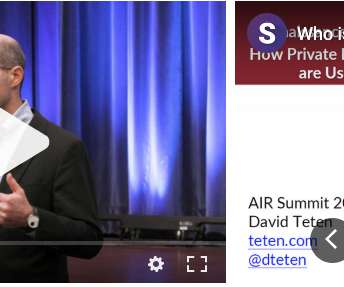Seed Stage Funding 101: What it Is & How it Works
The Startup Magazine
AUGUST 11, 2023
The fundamental objective and aim of seed investment is to assist a company in launching its operations successfully. Seed money can range from a relatively modest sum to a sizeable one, depending not only on the nature of the startup, the sector in which it will operate, and any other pertinent business aspects.





















Let's personalize your content